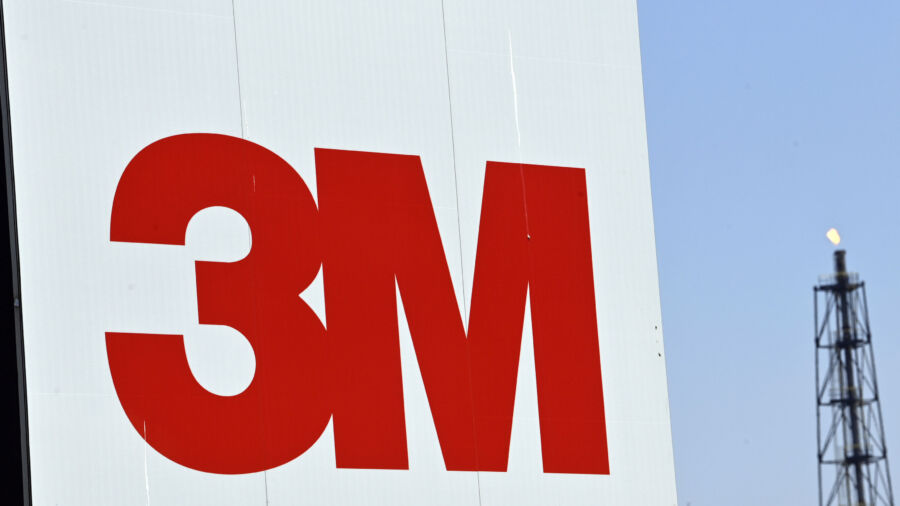3M has agreed to pay more than $6.5 million to settle U.S. charges that its Chinese subsidiary secretly sent Chinese officials on paid trips to the United States and Australia in an effort to boost company sales.
From at least 2014 to 2018, 3M’s wholly-owned China unit arranged for Chinese health care officials’ overseas travel, sightseeing, and entertainment activities on the pretext that they were attending conferences or marketing activities, the Securities and Exchange Commission (SEC) said on Aug. 25.
At least one former 3M China marketing manager and several staff from the sales, marketing, and professional services departments were involved in the scheme.
With the aid of two Chinese travel agencies, those 3M China employees targeted influential officials working at state-owned Chinese entities, creating a fake itinerary to get approval from the company’s compliance personnel—along with an alternative set of tourism activities near the event venue to entertain the Chinese officials.
The tourist destinations included Los Angeles, Nashville, Boston, Chicago, and Sydney, and sometimes the officials’ spouses joined the trip. In a nine-day tour involving 11 Chinese officials through three cities, the official agenda was packed with educational events while the alternative itinerary had “primarily tourism activities.” At least some Chinese officials didn’t understand English and weren’t provided interpreters necessary for them at the educational events.
The SEC said 3M China paid nearly $1 million for 24 such trips and measured whether these payments were driving up sales.
The China unit’s management had asked for a “return on investment,” and at least one employee was in charge of tracking post-trip sales to “ensure they were consistent with 3M-China’s sales goals,” according to the SEC. 3M “improperly benefited” at least $3.5 million in increased sales, it said.
Chinese Travel Agency
Between February 2016 and September 2018, 3M also paid a Chinese travel agency a total of $254,000 in 15 payments for vaguely termed “marketing” efforts, according to the SEC.
The 3M employees then improperly recorded these costs as legitimate business expenses.
The tourism activities were scheduled at the same time as the events that the officials were supposedly attending, and at times, the Chinese officials missed whole days of the events or simply never attended at all.
3M has agreed to pay the fine without admitting or denying the findings.
According to the SEC, 3M “promptly self-reported” its employees’ misconduct after first learning about it. The consumer products giant assisted the federal regulator by making witnesses available for interviews, voluntarily translating relevant documents, and sharing facts uncovered by its own internal investigation.
3M subsequently took remedial measures, including disciplining employees involved in the misconduct, terminating its relationship with Chinese travel agencies, and enhancing its internal controls environment and compliance program.
Under the terms of the settlement, 3M has agreed to pay more than $4.5 million in disgorgement and prejudgment interest, plus another $2 million in civil penalty, for a total of more than $6.5 million.
The Epoch Times reached out to 3M for comment but didn’t receive a reply by press time.
FCPA Cases
“This matter highlights the dangers to companies with global operations posed by inadequate internal accounting controls,” Charles Cain, chief of the SEC’s Foreign Corrupt Practices Act (FCPA) Unit, said in a statement about 3M’s settlement.
“Those dangers were exacerbated here by complicit third-party vendors.”
The U.S. Department of Justice and the SEC are jointly responsible for enforcing the FCPA, a law that was enacted in 1977 with the objective of prohibiting the payment of bribes to foreign officials to help obtain or retain business. The SEC created its FCPA unit in 2010 to enhance its enforcement.
There have been other FCPA cases in China in recent years.
According to an SEC order released in May, Dutch medical supplier Philips agreed to pay more than $62 million to settle charges involving its Chinese subsidiaries, which engaged in “improper bidding practices” with government-owned hospitals between 2014 and 2019.
In one incident, a district sales manager at Philips China provided $14,500 to a hospital director in return for the director’s help during the procurement process.
During the six-year plan, Philips China had “insufficient internal accounting controls” to prevent and detect its employees’ misconduct.
Altogether, Philip was “unjustly enriched” by about $41 million, according to the SEC.
In 2019, Quad/Graphics Inc., a Wisconsin-based marketing and printing services company, agreed to pay approximately $9.9 million to settle SEC charges that it engaged in multiple bribery schemes in Peru and China from at least 2011 to January 2016.
Quad’s Chinese subsidiary in Shanghai used sham sales to “make and promise improper payments to employees of private and government customers to secure business,” according to the SEC.
As a result of its schemes, Quad was “unjustly enriched” by about $7 million, the SEC said.
From The Epoch Times

